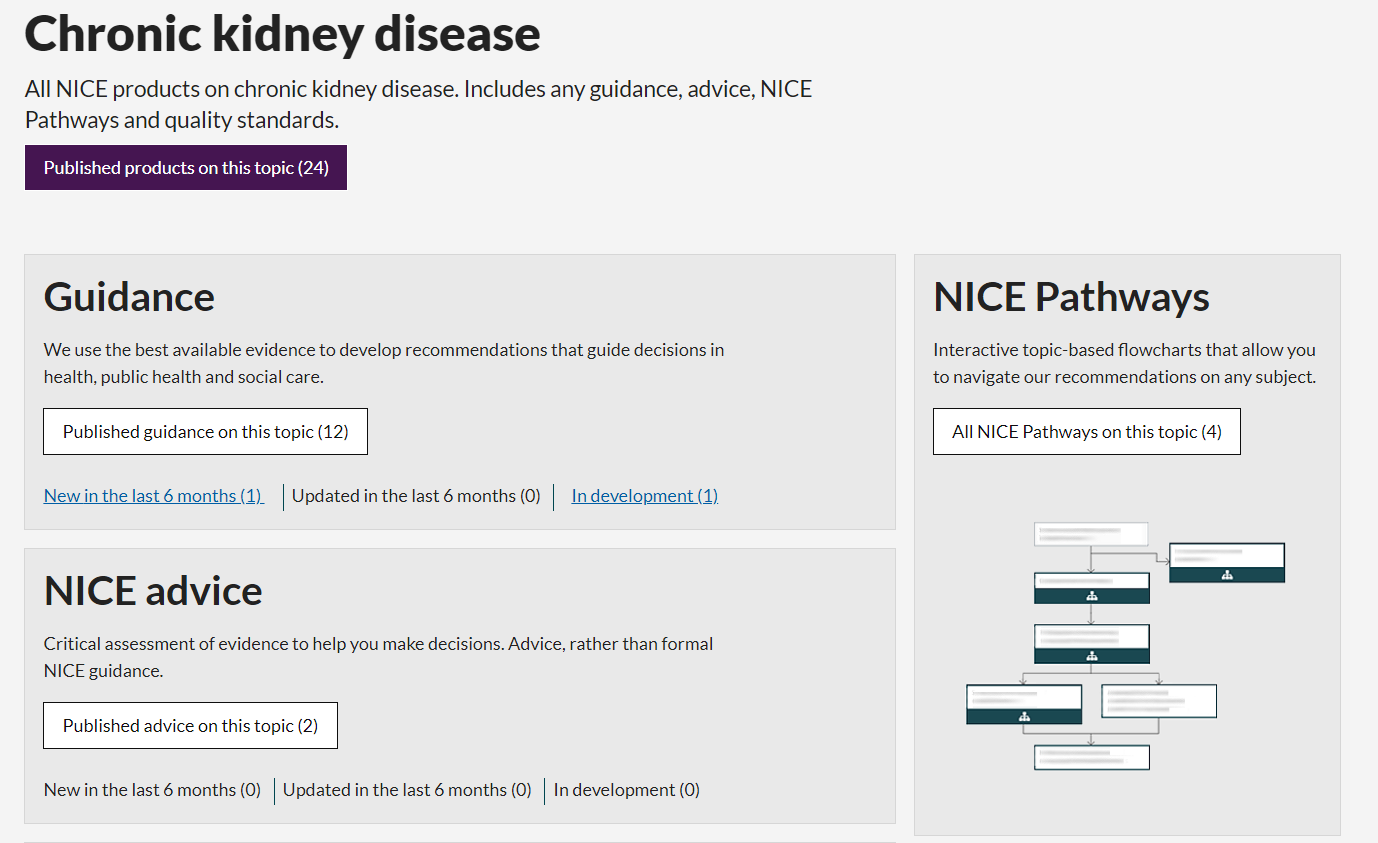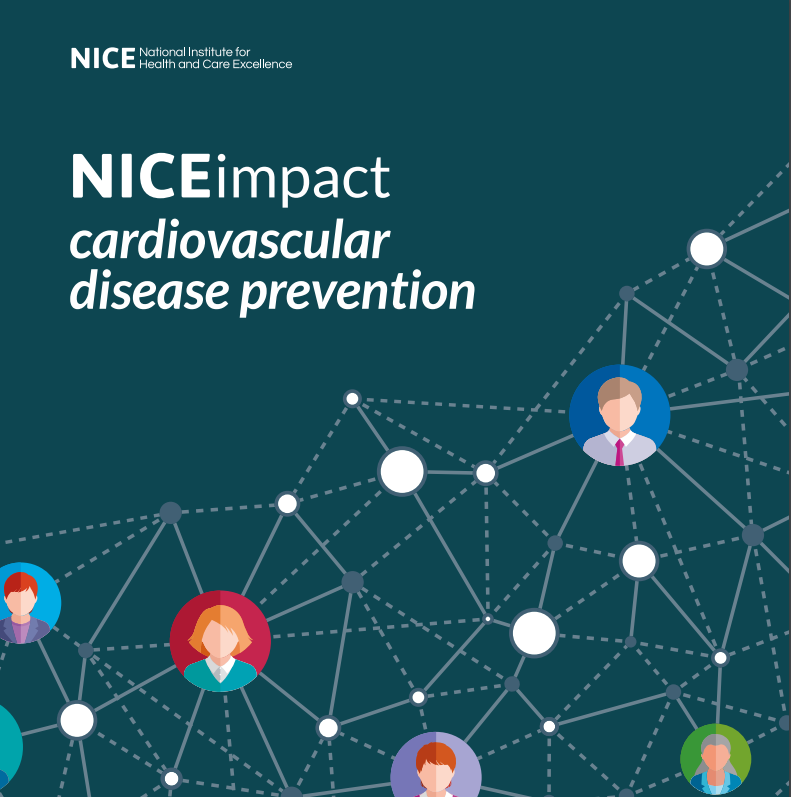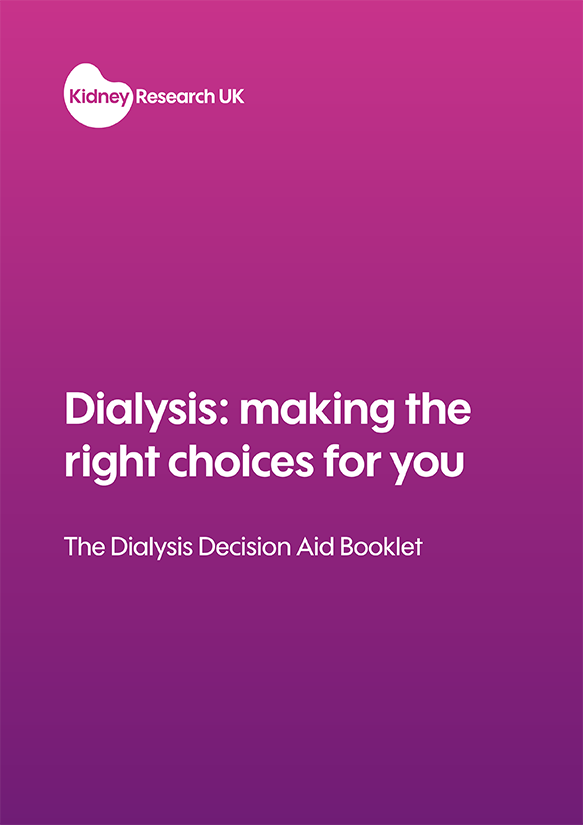CVD prevention: chronic kidney disease detection and management
How NICE resources can support local priorities

Making the case for action
Chronic kidney disease (CKD) is an abnormality of kidney function or structure that is present for more than 3 months, and some 1.2 million people are thought to be undiagnosed in England. CKD has many implications for health, including progression to cardiovascular disease.
In fact, people with CKD are 20 times more likely to die of cardiovascular disease than end-stage renal disease. The aim of early identification and treatment of CKD is to decrease the risk of progression to cardiovascular disease, as well as avoiding the need for dialysis or a kidney transplant.
NICE guidance and quality standards can help you improve services. They are aligned to the NHS RightCare and Public Health England (PHE) cardiovascular disease prevention pathway. They also support the NHS Long Term Plan, and the national ambitions for CVD prevention that have been developed from the plan.
Use data about your area
Reviewing data on what’s happening in your area helps you compare how you're doing with other areas, and make decisions on how to improve care. These resources provide data related to CVD prevention, including chronic kidney disease:
- Cardiovascular disease primary care intelligence packs look at prevention, diagnosis, care and outcomes and allow for comparison between CCGs and between GP practices.
- PHE’s cardiovascular disease profiles for each CCG cover coronary heart disease, diabetes, kidney disease and stroke.
- RightCare's ‘where to look’ packs include headline opportunities, improvement opportunity tables and pathways on a page showing how CCGs in your area differ from their peers.
- NHS Health Checks fact sheets and CVD prevention ‘size of the prize’ impact estimates estimate the potential impact of improving Health Checks uptake and CVD prevention in each local area.
- PHE’s return on investment tool helps commissioners decide the best approach to preventing CVD in their populations, by showing predicted impacts of different interventions. Optimising use of statins and antihypertensives could bring some of the biggest cost savings.

Finding the right information

NICE guidance to help you with detecting and treating chronic kidney disease
Our guidelines make evidence-based recommendations on topics ranging from preventing and managing specific conditions to planning broader services and interventions to improve the health of communities. They guide decisions about health and care by practitioners, providers, commissioners, service planners and users, and promote integrated care if appropriate.
The easiest way of finding all our guidance on chronic kidney disease is to go to our topic page on chronic kidney disease.
You can also look at our guideline on chronic kidney disease: assessment and management which covers the care and treatment for people with, or at risk of, chronic kidney disease.
NICE has produced a COVID-19 rapid guideline on chronic kidney disease. It recommends changes to usual practice to maximise the safety of patients and protect staff from infection during the COVID-19 pandemic.
Our NICE Pathway on chronic kidney disease is an interactive flowchart that shows how everything we've published fits together. The following video explains how to use NICE Pathways.
How to use NICE Pathways
Our quality standard on chronic kidney disease in adults includes quality statements that describe high-quality care in priority areas for improvement. See how to use quality standards for more information.
Support for improving quality

We publish a range of tools and resources to help with putting our guidance and quality standards into practice. You can find these on the ‘Tools and resources’ tab for each piece of guidance or standard.
Tools and resources for chronic kidney disease in adults include:
- A baseline assessment tool so you can compare your practice with the guideline recommendations.
- A costing report and template to calculate the local costs of implementing the guideline.
- Algorithms covering identifying CKD, managing proteinuria and the use of phosphate binders.
- A kidney failure risk equation calculator which estimates the 5-year risk of needing renal replacement therapy.
Our impact report on CVD prevention highlights the progress made by the healthcare system by implementing our guidance. You may also find the clinical knowledge summary on CKD useful.
NICE indicators
We’ve developed a set of outcome indicators for kidney conditions. Indicators can be particularly useful when:
- creating local performance dashboards
- benchmarking performance against national data
- developing local quality improvement schemes
- measuring progress that local health systems are making on outcomes.
Shared learning case studies
The shared learning collection contains over 500 case studies showing how organisations around the UK have used NICE guidance and standards to improve the quality of health and social care services.
• Implementing NICE Guidelines to reduce inequalities and improve the healthy life expectancy of the population of Dudley – Optimising Hypertension management in Dudley (December 2017).
• Embedding NICE guidance into GPSOC clinical systems (January 2017).
NICE endorsed resources
Kidney Research UK and the University of Leeds have produced a decision aid booklet that supports the recommendations in the NICE guideline on renal replacement therapy and conservative management.
Chronic heart failure in adults e-learning course is an online training course in several modules. It is designed to support staff in implementing NG106 Chronic heart failure. It covers diagnosis, team working, pharmacological interventions, specialist management for reduced ejection fraction, and lifestyle advice.




